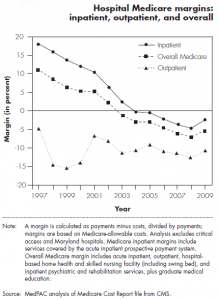“Walk the Walk” author Alan Deutschman’s previous book kind of said it all in the title, “Change or Die.” In that book, Alan carefully lays out the statistical survivability matrix, and poses the question:
“What if you were given that choice? For real. What if it weren’t just the hyperbolic rhetoric that conflates corporate performance with life and death?…What if a well-informed, trusted authority figure said you had to make difficult and enduring changes in the way you think and act? If you didn’t, your time would end soon — a lot sooner than it had to. Could you change when change really mattered? When it mattered most? “
Then, he articulates the actual outcomes of studies. Talk about “tough love.”
“…The odds? You want the odds? Here are the odds that the experts are laying down, their scientifically studied odds: nine to one. That’s nine to one against you. How do you like those odds?”
So, as a nation, as healthcare leaders, as human beings in a country that is currently facing the realities of potential economic disintegration, we are faced with what can only be described as another enormous challenge: a financially unsustainable healthcare system. Regardless of your politics, regardless of your personal beliefs regarding the competency of the federal government and its ability or inability to fix anything, the law has been passed, the train is moving and it’s moving directly toward you and your hospital.
Over the past three years, we have repeatedly presented money-saving and money-making ideas to help begin to position your healthcare organization for the impending tsunami of change that has been launched. As a veteran of TQM, Six Sigma, Baldridge, and a half dozen other consultant-delivered “fixes,” I’m sure I can hear the words going round and round in your head, but, not unlike the clamor that arose from the HMO/PPO days of yesteryear, this ACO/SSP challenge has to be met and dealt with intelligently, and it has to be done in such a way as to not destroy your hospital or health system.
Let’s face it, we’re all pretty smart folks. We’ve all been in permanent white water for years, and the last thing that many of us want to take on is the ole captain of the ship without a rudder, during a hurricane while the lighthouses are being moved around on the shore. But, once again, it’s here. It’s upon us, and we must deal with this challenge in an intelligent manner.
One possible alternative for smaller organizations is the SSP, a Shared Savings Program, the alternative put forth by CMS, the Center for Medicare and Medicaid Services, to a full-blown ACO, an Accountable Care Organization. Either way, however, SSP or ACO, the primary, overarching goal is to try to improve quality, decrease costs, and provide patient-centered care in a meaningful way. Not unlike the old HMO/PPO days, the effort requires infrastructure (and plenty of it…the average participant in the demonstrations spent about $1.7M on this one, single aspect of managing the healthcare new world order.)
What do you need? Well, you need 5,000 patients, to start. Then:
- Decide if you will use Medicare only or other patient groups.
- Determine the exact service area that you will target. How many square miles?
- Decide which reimbursement model will work for your organization, i.e., an SSP that is more risk-based, or capitated.
- Figure out which provider groups will be involved.
- Examine IT reporting capabilities and process improvement methodologies.
- Identify patient-related strategies such as enhanced experience for the patients or faster throughput as well as reduction in errors.
- Then, dig deep into the organizational strategies for improvement.
 Let’s face it. From 2001 until 2008, total Medicare inpatient margins for acute care hospitals have decreased every single year. (Source: Journal of Healthcare Management) Reimbursements have decreased while your bad debt has increased. So, regardless of your tolerance for risk or change, cost control simply must become the culture of every healthcare organization in the United States. We have seen the variances in costs based on geography in this country and treble charges in one area as opposed to another will not go on into the future. Joel Allison, CEO of Baylor Health has stated that this movement is “All about…focusing on wellness, on prevention.” (Arnst, 2010)
Let’s face it. From 2001 until 2008, total Medicare inpatient margins for acute care hospitals have decreased every single year. (Source: Journal of Healthcare Management) Reimbursements have decreased while your bad debt has increased. So, regardless of your tolerance for risk or change, cost control simply must become the culture of every healthcare organization in the United States. We have seen the variances in costs based on geography in this country and treble charges in one area as opposed to another will not go on into the future. Joel Allison, CEO of Baylor Health has stated that this movement is “All about…focusing on wellness, on prevention.” (Arnst, 2010)
We need our primary care docs, we need physician participation to a far greater degree than we currently have, and, at the same time, the physicians must be partners in the effort. Employing physicians is also a critical element.
SunStone Management Resources can assist you in this effort on numerous levels, but the time to act is now!






